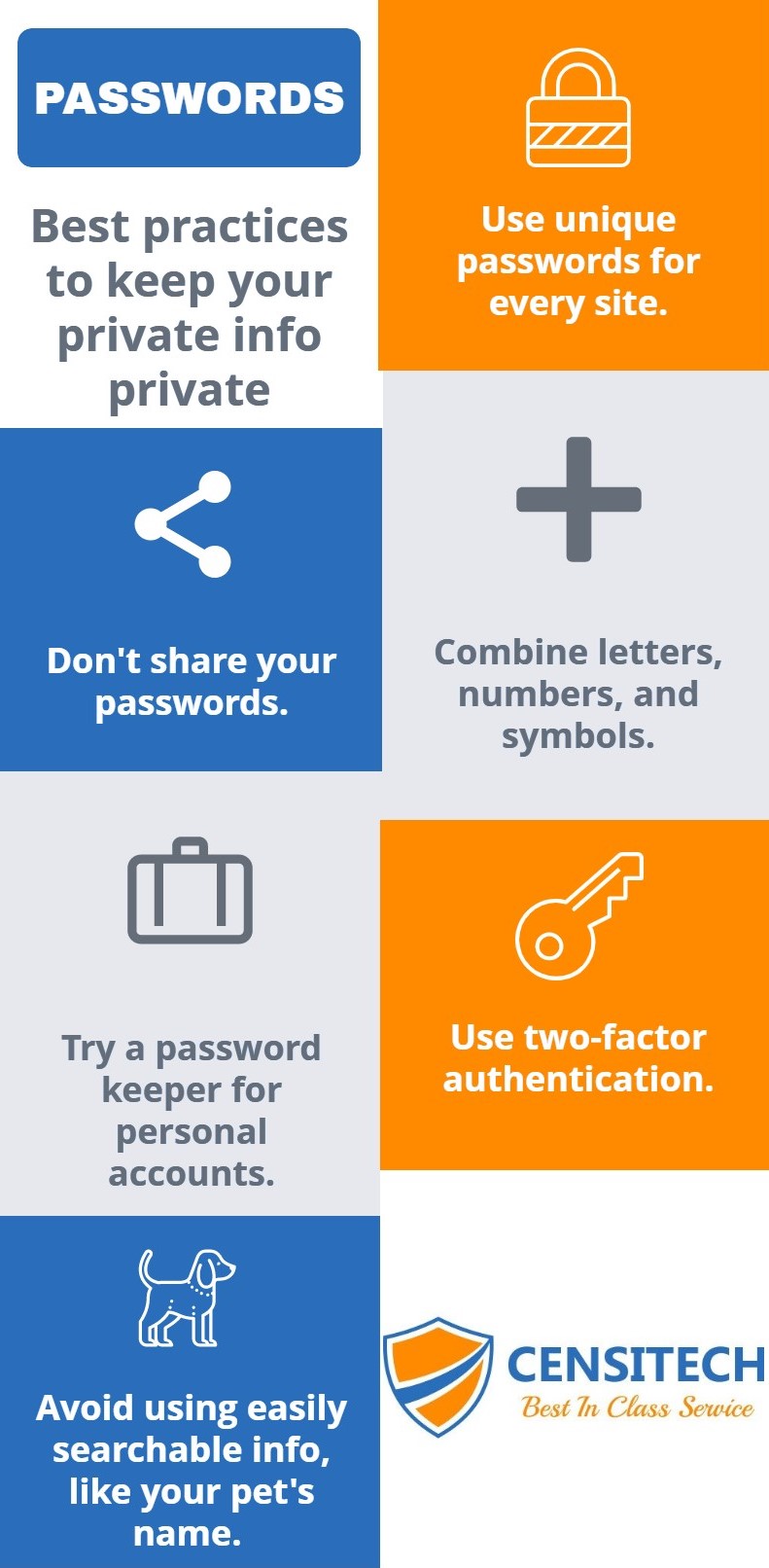
Passwords are often the only thing stopping a would-be thief from accessing banking information, social media accounts, credit reports, email, and more. Use strong passwords to ensure your personal information remains safe. Here are some tips and tricks to help secure your private information.
Use unique passwords for every site
Considering the multitude of applications in our day-to-day lives, it can be difficult to remember all the different passwords we have setup. However, if you use the same password for all of your online data, then all it takes is one data breach to give an intruder access to all of your other online applications. Remember the recent Equifax data breach that occurred in 2017? 147 million people had their personal information compromised. Now granted, this information was mainly personally identifiable information such as social security, birth date, drivers license, etc..., but many of these data breaches include account usernames and passwords. If you are like many people in the online world, and you use the same password for all of your accounts, all it takes is one data breach to give the thief access to all of your other online accounts. Use unique passwords...for every site.
Don't share your password
Yes, we have all done it at least once. Someone we knew and trusted needed access to one of our accounts, and because it was simply easier to give them the password instead of logging them in, we shared our password. I have been guilty of this too. As much as we love and trust people, and those individuals will often have the best of intentions, sharing passwords can get us into a lot of trouble. Once we share our password with someone else - we lose control of the account. There is no way of knowing who has access to that account. Kids are often times the culprit. They get to know one of our passwords, and then innocently share it with one of their friends, who shares it with someone else, who breaks into our online wallet and takes all of our bitcoin! Well, maybe not bitcoin, but something of value. And, this is made worse if we are using the same password for all of our accounts.
Combine letters, numbers, and symbols
Most applications require users to have a combination of letters, numbers, and symbols. But even if they don't, be disciplined and force yourself to make your passwords complex. If you are simply using words, then a simply password hacking tool can use a dictionary attach to break your password. Add a number into the mix, and that adds an additional level of complexity. Add a symbol, and now we are talking! Also try replacing letters with symbols. If your password has the word "medical" in it, try using "m3d1cal".
Try a password keeper for personal accounts
There are many password keeper applications out there these days. The benefit of these applications is they allow you to create an extremely complex password, and you never have to remember it because the application stores it for you. Granted, it is one extra step to open the password keeper tool to retrieve your complex password every time you want to log into your application, but it makes a huge difference in the level of security for your online accounts.
Use two-factor authentication
This is simply using two methods of authentication when access your account. The most common methods are password + text message. When you log into your account with the correct password, the application will prompt you for the pin that it sent to your mobile device. The benefit of this approach is if someone learns your password, they cannot access your account without also having access to your mobile phone.
Avoid using easily searchable info, like your pet's name
It is amazing how many people use their kids birthday, pets name, and other public info in their passwords. With our social lives on the internet, it is very easy for thieves to learn a good deal about our personal lives. Using personal info that is easily searchable, is simply asking for someone to break into your accounts. Use words, phrases, and information that only you would know, or better yet, information that is completely random and has no relation to you as an individual.
Passwords are the first line of defense. All of our online data is accessible from any computer across this planet. Don't make it easy on the attackers. Add complexity, make it unique, make it a bit more difficult on yourself to ultimately make is next to impossible for the attackers to gain access to your private information.
